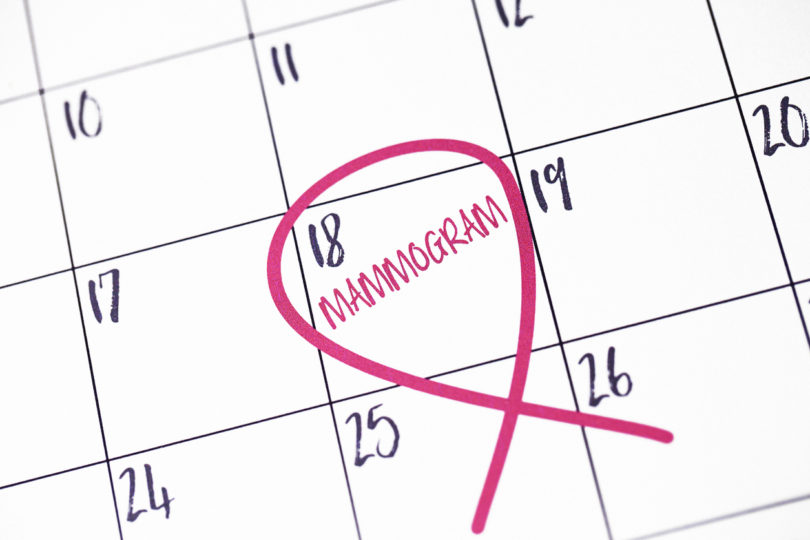Let’s talk, woman to woman. Have you gotten your mammogram yet?
Estimates say 1 in 8 women will get invasive breast cancer over the course of her lifetime.
Think about eight women you are close to. Have any of them had breast cancer? I can tick off names on one hand with little effort and keep going — including my mom.
It’s easy when you’re in your 20s or 30s to think that breast cancer is a disease that only affects older women — until it doesn’t. Just in the past decade, a close friend from childhood has battled it, along with a teacher at my children’s school and a few more casual acquaintances. One of my best friends from high school tested positive for the breast cancer gene. Then, in just the past two years, two more of my friends were diagnosed.
Over the years, guidelines have changed about when women should begin yearly mammograms. Some experts recommend 45, to avoid unnecessary testing. Others say 40, because finding it early might mean less invasive treatment if something is found.
For my two friends with recent diagnoses, their cancer was discovered on their very first mammograms. Both were 40.
It was the possible difference between my life and death because I had a very aggressive hormone-driven cancer,” my friend Cristel told me.
Cristel ended up getting a double mastectomy, as did my other friend, and I’m happy to report that both are now doing well. Still, the U.S. Preventive Services Task Force says regular mammograms before age 50 aren’t usually necessary. What if my friends had waited?
Breast cancer kills more American women than any other cancer except lung cancer, and it’s the most common cancer that affects women besides skin cancers. Thankfully, though, breast cancer deaths have been decreasing since 1989, especially for women under 50. The decreases are thought to be the results of increased awareness, advances in treatments and earlier detection through screening. Caught early, breast cancer is very treatable, and the chance that a woman will die from breast cancer is about 2.6 percent.
By and large, experts do agree that screening should be individualized, and that when to start getting mammograms should be a discussion that every woman has with her doctor. My mom was 38 when she was diagnosed (she’s now a 35-year survivor), so technically, I should have started getting mammograms even before the recommended guidelines. A woman’s risk nearly doubles if she has a first-degree relative (mother, sister or daughter) who has been diagnosed.
I finally started getting mammograms right at 40, after I was done having children and nursing. This year marked my 6th. I don’t find them to be much of a big deal. A little uncomfortable, sure, since you’re basically having to contort your body around a machine to get your boobs in the optimal place for photos. But what’s a little bit of discomfort if it means safeguarding your health? I’ll take that any day of the week.



